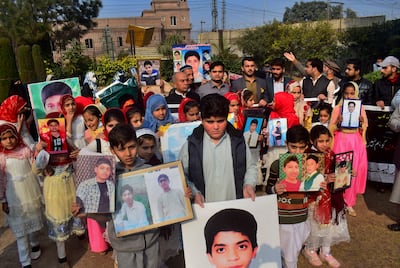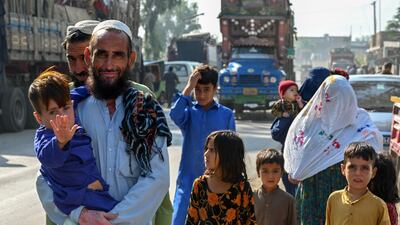Sarfraz Bugti, Pakistan’s caretaker Interior Minister, announced at the start of October that the country’s caretaker government would begin the expulsion of 1.7 million unregistered Afghan refugees, with the deadline set for November 1. The deportations have already begun, and on Thursday Pakistani officials announced the establishment of deportation centres to hold any undocumented foreigners who have not left by the deadline. The plan represents the largest forced repatriation since the establishment of the UN’s Refugee Convention in 1951, which was created to prevent actions like these.
Although Pakistan is not a signatory to the treaty, the UN’s Refugee and Migration agencies have appealed to Islamabad to reconsider. What has prompted Pakistan to pursue a path that will cause so much human suffering, and is so contrary to established norms?
Caretaker governments are meant to provide non-partisan governance during election campaigns. Given this limited mandate, they rarely take major decisions. Pakistan’s current caretaker government stands out in particular because it is composed of figures selected by the military rather than the major political parties. This has an impact because Pakistan’s Afghan refugee policy has always been weighted towards security interests in Afghanistan. The nature of those interests, however, have sharply changed over time.

The Afghan refugees who began streaming into Pakistan after the Soviet invasion of 1979 were welcomed in large part because Pakistan wanted to ensure that the Afghan resistance had a large and secure social base of support. As Moscow withdrew its forces in the late 1980s, senior Pakistani strategists envisioned and advocated a future where the two countries had fully integrated their economies, or even entered into confederation. The sheer size of the Afghan population in Pakistan and the openness of the border allowed Pakistan to dominate Afghanistan’s economy and politics.
But the emergence of the Pakistani Taliban (the TTP) in 2007 changed all of that. The TTP’s ferocious insurgency was like nothing Pakistani army generals had ever experienced, or even imagined. The scale and reach of the TTP’s violence were certainly shocking, but the depth of the ideological challenge was even more terrifying. Armed forces personnel of every background seemed susceptible to a message that denied legitimate authority to anyone other than a reclusive one-eyed Afghan preacher.
It is no accident that Pakistan stopped granting formal refugee status to new arrivals after 2007. And after the horrific Army Public School massacre that took place in Peshawar in December 2014, the Pakistani government began mass forced repatriations on a scale that had not been seen since Partition. Over 400,000 displaced Afghans were sent back, forcing Kabul to seek some kind of detente with Pakistan.


Afghan refugees, it should be noted, had nothing to do with the TTP and its violence. In fact, the TTP had been largely driven out of its safe havens by a series of army offensives in the semi-autonomous “tribal agencies” along the border. The displaced militants then began to operate from territory vacated by the Kabul government. By 2017, the expulsions of refugees had stopped, but in exchange the Afghan government reluctantly accepted Pakistan’s fencing of the border.
Today it is the Taliban’s Islamic Emirate, rather than the elected and pro-western leadership of the Afghan republic that sits in Kabul, but Pakistan’s choices have not changed for the better. That is because, remarkably, the TTP received support from both of these very different, and very mutually hostile Afghan regimes. Every Afghan government of the past 75 years – royalist, communist, democratic and clerical – has found itself unable to accept the legitimacy of Pakistan’s colonial borders, and this has inevitably led to conflict with Pakistan.
Beyond the clash of nationalisms, the Afghan Taliban feels an additional ideological compulsion to support its sister movement, the Pakistani Taliban. The Pakistani government’s on-and-off transactional support to the Afghan Taliban is simply no match for what the Taliban leadership seems to sincerely believe is a matter of faith.
Thanks to the US pullout and the Taliban’s takeover in Kabul in 2021, the TTP has emerged as a reinvigorated force, with an enormous safe haven and no shortage of weapons. The result has been an expanding insurgency in Pakistan’s provinces of Khyber-Pakhtunkhwa and Balochistan, with hundreds of attacks conducted this year alone.
Pakistani forces have not yet been able to turn this tide, despite steadily mounting casualties. After the divisive and bruising battle with Imran Khan, and the near-meltdown of the economy, the failure to maintain peace and security is an extremely serious political problem for the military’s legitimacy.
Although Pakistan has threatened military force against the Afghan Taliban, and even carried out airstrikes on Afghan soil, there is considerable reluctance to get bogged down in the same kind of war that exhausted the Soviets and American superpowers. Especially when Pakistani forces are already stretched between multiple insurgencies. Instead, the goal seems to be to wage an indirect economic war on the Taliban.
A million and a half returnees would put severe pressure on food and housing prices as well as public resources. On top of that Pakistan has cracked down on the highly profitable transit trade between Afghanistan and Pakistan, threatening the Taliban’s tax base. Cumulatively, the hope seems to be that these actions will challenge the Islamic Emirate’s economic stability, and ultimately its domestic legitimacy, without creating a military crisis.
Unfortunately, the Afghan Taliban’s track record does not suggest that they respond to such high visibility external pressure of any sort, whether military or economic. The Taliban’s threshold for pain and its options for escalation remain far higher than that of Pakistan.
Meanwhile, the Pakistani government’s current policies will likely cause immense suffering to refugees and border communities in both countries, which will likely add rather than alleviate its security burden. The radicalisation of Afghan refugees against their adopted country can very easily be transformed from a false stereotype to a self-fulfilling prophecy.
It is clear that Pakistan requires the support of the international community to take on the TTP and to restrain the Taliban. But in turn it must uphold international norms when it comes to the treatment of refugees.


